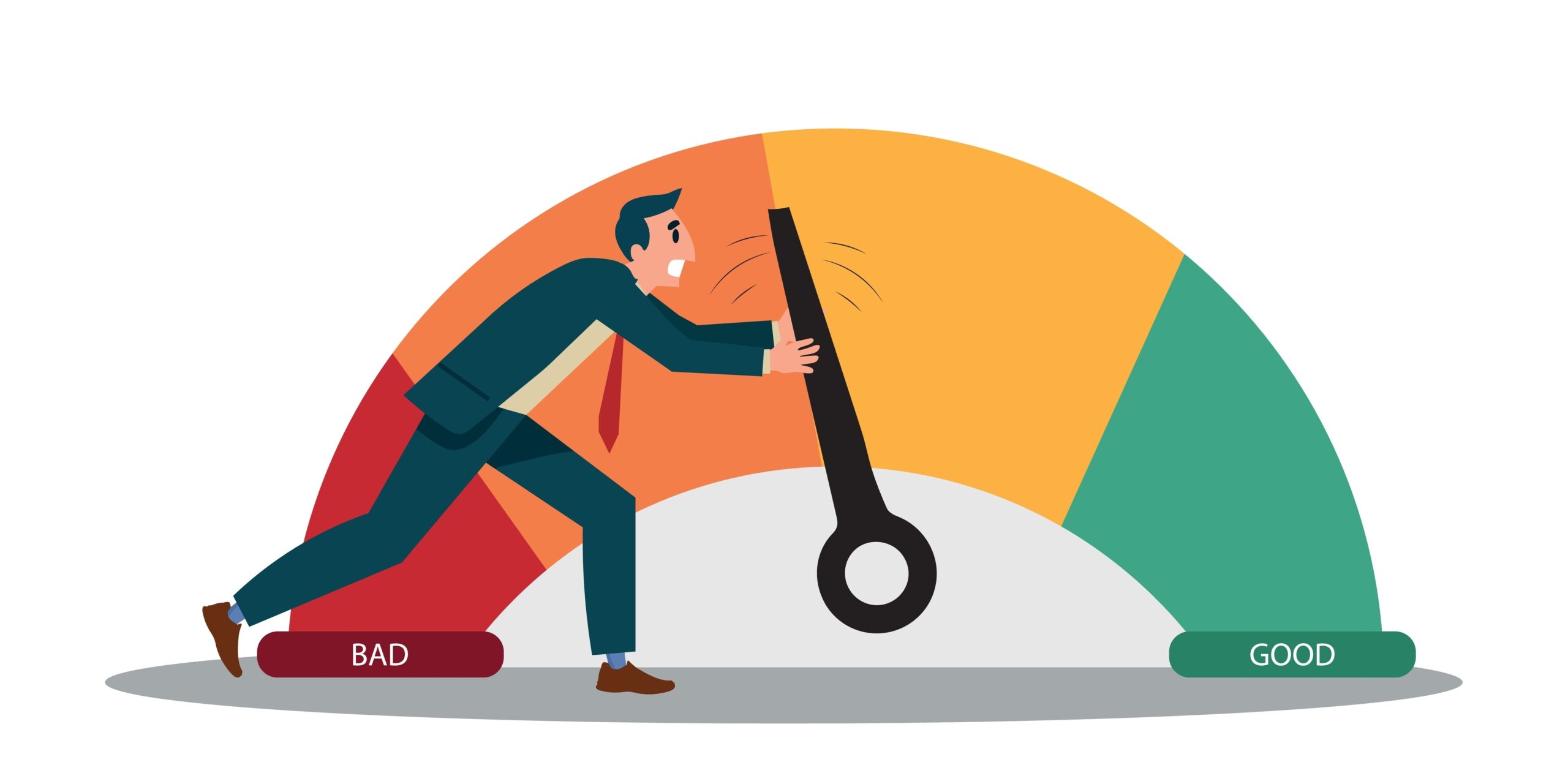It can be hard to determine what a bad credit score is. It can be even harder to know how to fix your credit. Various factors contribute to poor credit ratings, and it’s important to know what they are so you can take the necessary steps to start rebuilding.
What is Bad Credit?
Three major credit bureaus track your credit rating: Equifax, Experian, and TransUnion. They use the information in your credit file to determine your score, ranging from 300-850.
Your credit score is negatively affected by bad payment history and high utilization, among other factors such as the age of your credit history and the longevity of your accounts. A low credit score is typically anything under 580.
The Negative Effects of a Low Credit Score
Having a bad credit rating makes it difficult to get approved for loans. It can also mean higher interest rates and subpar terms on any loan you get.
Additionally, it can impact your ability to buy or rent housing, get a cellphone plan, or in some states, you may even get charged more for car insurance. Poor credit can also impact your eligibility for some jobs and may require paying a deposit to access home utilities.
Check Your Credit Report
If you’re unsure what’s on your credit report and how it affects your score, you can access that information in several ways.
You can get the reports directly from the bureaus by creating an account on their website. There are also sites and apps like Credit Karma or Annual Credit Report. Simply sign up for a free account and view a breakdown of your credit report, score fluctuations, and even get tips for improving your rating.
How To Improve Your Credit Score
Knowing what impacts your score is the first part of rebuilding bad credit. Here are some ways to begin fixing your credit.
Double Check Your Credit Report
It’s important to ensure that all the information in your credit report is accurate. Any discrepancy, such as an incorrect date on an account or a misreported payment, can give you a reason to dispute and potentially improve your score.
Ensure Your Accounts Are Up to Date
Payments late by 30 days or more are usually reported to the bureaus. If you have any past-due accounts, bringing them up to date is essential because payment history is an important factor in your credit score.
Lower Your Credit Utilization
If you’re close to maxing out your credit cards, your utilization is probably high. Credit utilization is how much credit you use compared to your total limits. It’s best to stick to a 30% utilization or lower. You can also try raising your limits, which will lower your utilization.
Pay Off Existing Debts
Paying off balances can save you money on interest payments. Lowering the amount of debt you have will have a positive impact on your score. If your balances are high, consider a debt consolidation loan.
Don’t Apply For New Lines of Credit
Are you trying to rebuild your credit? Then now is not a good time to apply for new credit. Hard inquiries into your credit report can lower your score until they fall off.
Keep Unused Accounts Open
Keeping unused accounts open is generally a good idea since closing them can negatively impact your score. Closing an account will also raise your utilization because it lowers the total amount of available credit. The length of your credit history boosts your credit score, so don’t jeopardize any account longevity by closing an unused account.
Boost Your Credit Score
There are programs, like Self or Experian Boost, you can sign up for that help you report payments that don’t make it onto your credit report. Rent, phone bills, and even subscription services can be reported. These regular payments can help raise your score.
How Long Does Rebuilding Credit Take?
There are no shortcuts to improving your credit rating. It will take some time to improve your credit score, depending on your situation. If you’re struggling with a lower score due to a high debt load, it will take longer since you have to pay off the loans to see a positive impact. However, disputing errors on your credit report will mean a higher score once the mistake is removed.
It’s important to consider how long items remain on your credit report. Most derogatory marks, such as accounts in collections, foreclosures, and Chapter 13 bankruptcy, stay on your report for seven years. However, Chapter 7 bankruptcy remains for 10 years.
Good Credit Habits To Practice
When working toward rebuilding your credit score, it’s essential to follow good credit practices. This will not only help you achieve your goal but also help you build positive habits to avoid your score falling again in the future.
- Track your credit score
- Make payments on time
- Manage your debt-to-income ratio
- Avoid maxing out credit cards
- Don’t take on unnecessary debt
- Start a savings account
- Protect yourself against identity fraud
A good credit score means you’ll have an easier time navigating financing for things like your car or home. Don’t let a bad credit rating stop you from reaching your dreams. Take charge of your financial standing and begin rebuilding your credit today.
*The information contained in this post is for general educational and informational purposes only. It is not an offer of credit, does not fully describe the products that we offer or facilitate, and it is not specific to any individual. These products are an expensive form of credit, and you should ensure that they meet your unique financial needs. We are not a credit repair organization and make no representation that we or any loan will improve or attempt to improve your credit rating. We do not provide financial advice or assistance regarding your credit situation. These educational posts are not a substitute for individualized professional advice.







